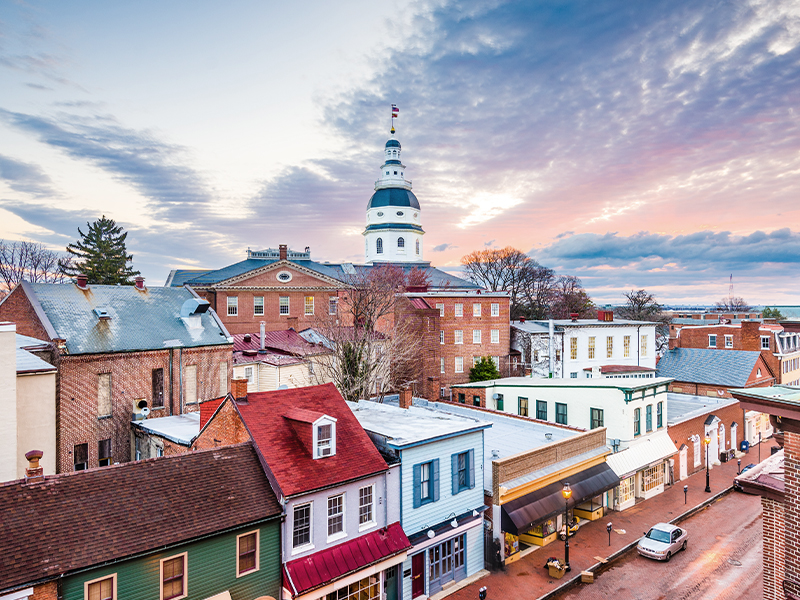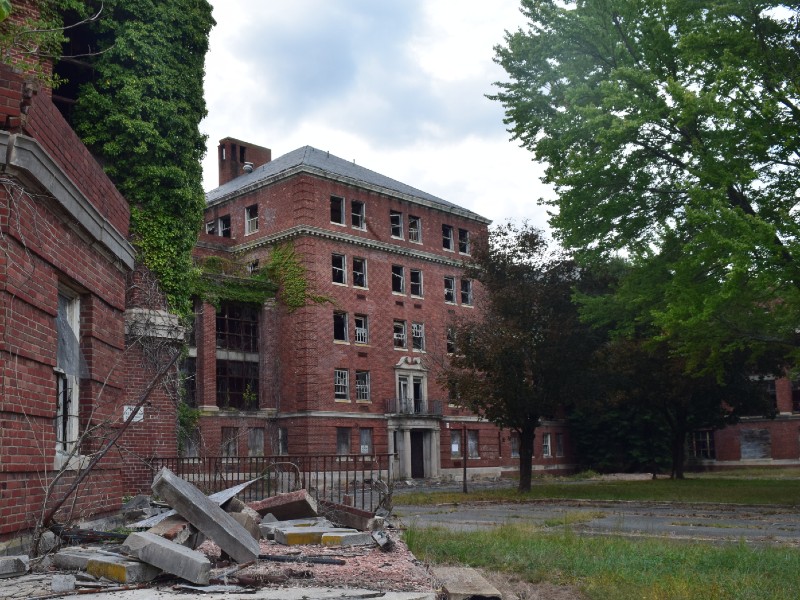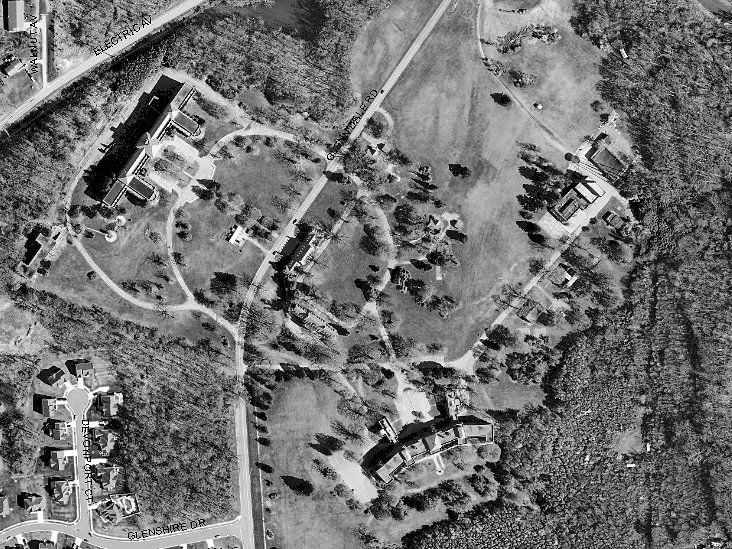The 2021 Legislative Session of the Maryland General Assembly came to a close on Monday, April 12, 2021. After 90 days of championing key bills and testifying on many other pieces of important legislation, it is safe to say that Preservation Maryland had one of its busiest legislative sessions in recent history, and everything was accomplished remotely. With Session adjourned until January 2022, we are happy to report that we were able to make significant advances for preservation and smart growth in Maryland.
While this session did not look like those of years past due to Covid-19 precautions, Preservation Maryland remained active virtually advocating for the pro-preservation and pro-smart growth policies that will help save thousands of historic buildings and acres of open space. Over the past several years of our increased presence in Annapolis and ramped-up advocacy efforts, we have sustained ourselves as the leading voice for preservation, but this year, we faced our biggest challenge to date.
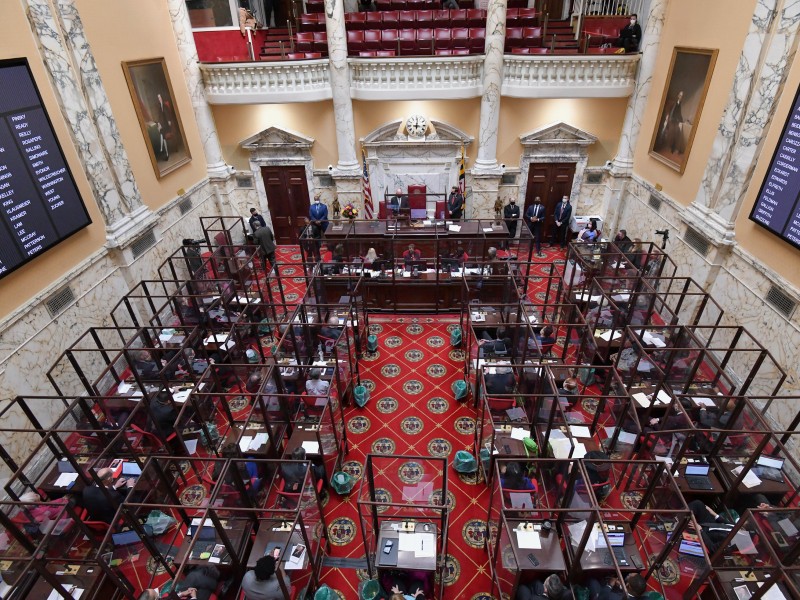
Maryland Senate Chambers, Statehouse, Annapolis, MD, 2021. Photo by Maryland GovPics on Flickr.
Preservation Advocacy Successes
Although faced with adversity, Preservation Maryland was able to succeed in passing a number of our legislative priorities, including:
Small commercial program – State Historic Revitalization Tax Credit [SB659/HB865]
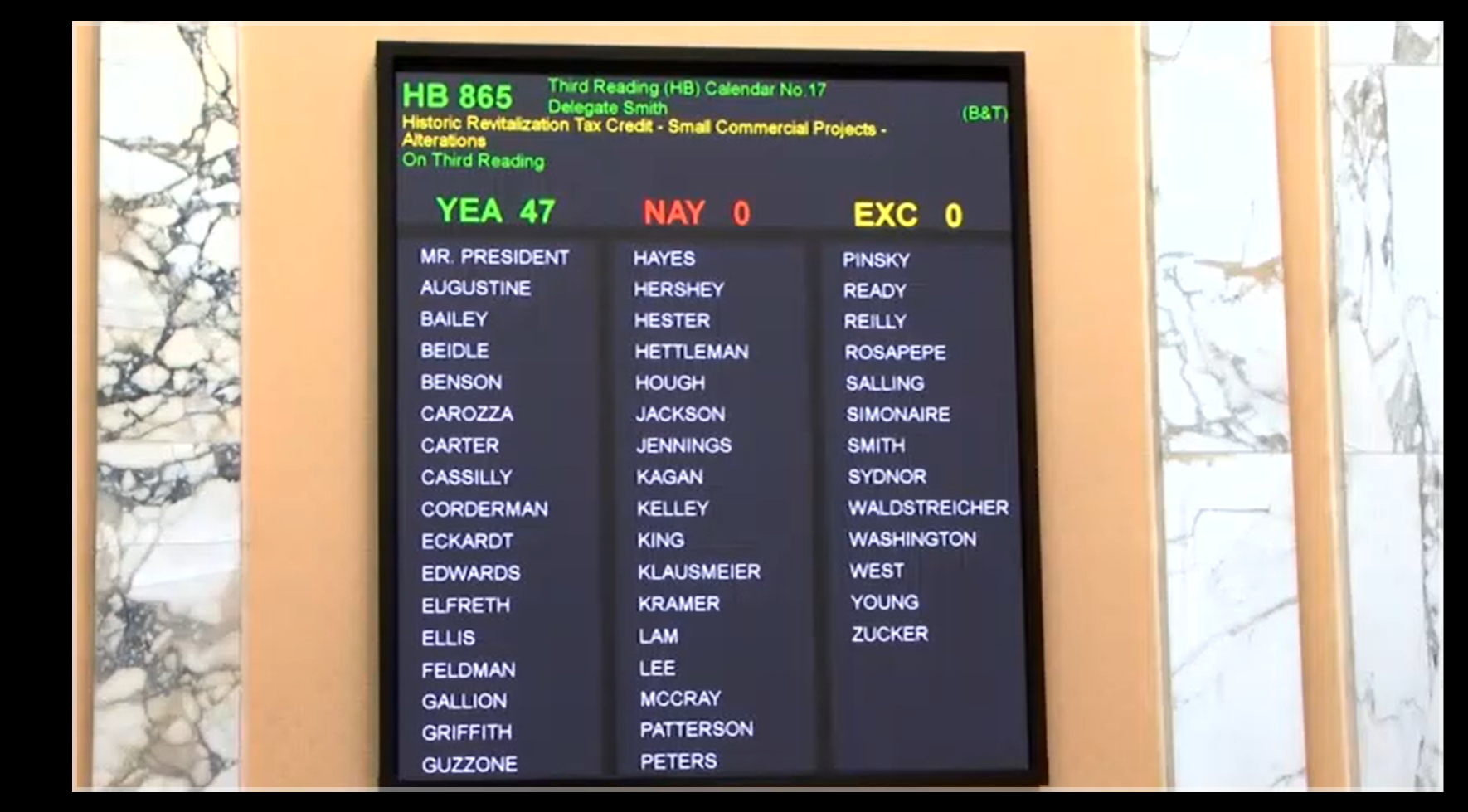 Due to the overwhelming success of the Small Commercial Program of the state historic tax credit, it had completely run out of funding, having exhausted the initial $4M authorized amount. It has been the backbone for many Main Street projects across the state and now has the potential to be used to transform vacant houses into vibrant historic homes for many for whom home ownership had long been out of reach. But, without more funding to the program, those projects have not been able to move forward.
Due to the overwhelming success of the Small Commercial Program of the state historic tax credit, it had completely run out of funding, having exhausted the initial $4M authorized amount. It has been the backbone for many Main Street projects across the state and now has the potential to be used to transform vacant houses into vibrant historic homes for many for whom home ownership had long been out of reach. But, without more funding to the program, those projects have not been able to move forward.
Thanks to legislation sponsored by Delegate Stephanie Smith (Baltimore City) and Senator Guy Guzzone (Howard County), the life of the program has been extended by increasing the authorization for the Small Commercial Historic Tax Credit Program by an additional $1M. While this amount does not come close to addressing the present need of shovel-ready projects across the state, it will help keep the program active.
Thank your legislators for passing this essential preservation legislation today!
Economic and Community Development – Income Tax Credit for Catalytic Revitalization Projects [SB885]
This legislation, introduced by Senator Katie Fry Hester (Carroll and Howard Counties), creates a new tax credit within the Department of Housing and Community Development to support the revitalization of catalytic projects and instructs the steering committee of the workgroup that studied the reuse of historic government complexes in 2019, on which Preservation Maryland served, to make recommendations to the Department of Housing and Community Development and the Department of Commerce.
- Photo of Glenn Dale Hospital historic complex in Prince George’s County, MD. This complex was studied in the research of reuse of historic government complexes in 2019.
- Aerial view of the Glenn Dale complex, 2009.
Additionally, as a result of a House amendment from Delegate Eric Luedke (Montgomery County), this bill mandates $12 million in minimum funding to the Large Commercial HTC for fiscal years 2023 and 2024. In recent years, Preservation Maryland, our colleagues, and advocates have worked diligently to increase funding for the Competitive Commercial program of the State Historic Tax Credits, which has consistently been funded at $9 million. This mandated increase in funding is a huge victory for preservation, and we look forward to continuing the fight to fully fund this essential redevelopment program that encourages investment in community revitalization projects across the state.
Historic Revitalization Tax Credit – Certified Historic Structure and Single–Family, Owner–Occupied Residence – Definitions [HB539/SB447]
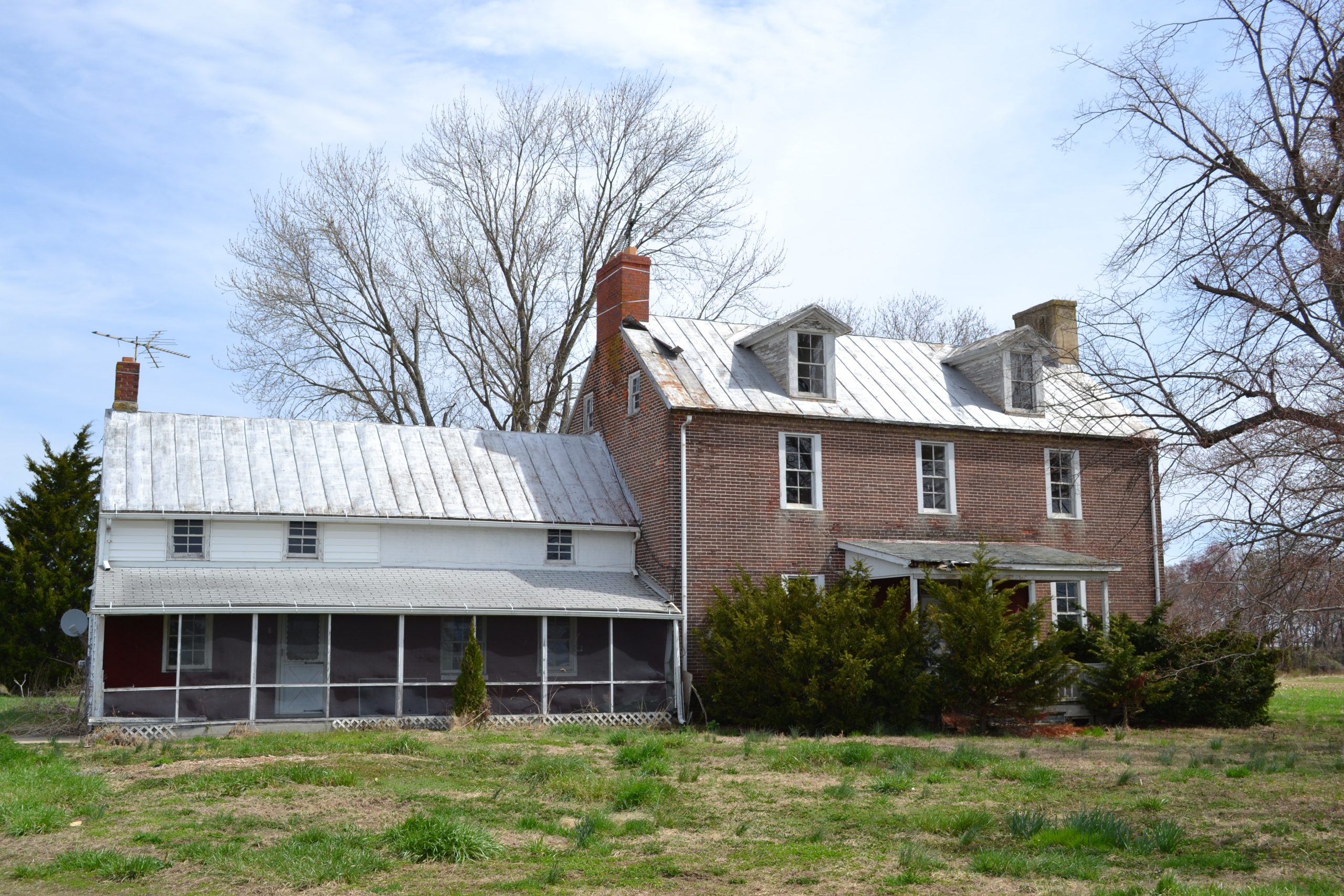
Old Bohemia Tenant House in Cecil County as part of the DNR Resident Curatorship Program.
Participants of the Department of Natural Resources’ Resident Curatorship program will now be able to access the residential historic tax credit.
budget Highlights for historic preservation Funding
- $600k for Maryland Historical Trust capital grants.
- $300k for Maryland Historical Trust non-capital, survey & research grants.
- $1M for Maryland Historical Trust African American Heritage grants.
- $9 million for the state Historic Tax Credit large commercial program — level funding from last year’s appropriation and less than 10% of Virginia’s annual investment.
- $6 million for the Maryland Heritage Area Authority.
Smart Growth Advocacy Successes
Southern Maryland Rapid Transit Program [HB414]
Over the last 25 years, the state has completed five major studies on the feasibility, need, and economic impact of high-capacity, fixed-route transit service to Southern Maryland, and despite the conclusion of every study repeatedly confirming that the Southern Maryland Rapid Transit project would vastly improve the quality of life for Southern Maryland residents, promote economic development consistent with smart growth, and advance the State’s emissions reduction goal, the Maryland Department of Transportation has not moved forward with the project. HB414 requires the State to complete the NEPA study of the Southern Maryland Rapid Transit project and, contingent on federal funding, provides for for at least $5 million in matching state funds from the Transportation Trust Fund to do so, an essential step forward for the transit project.
Clean Energy Loan Program – Remediation and Resiliency [hb517]
This legislation expands Maryland’s current clean energy loan program (MD C-PACE) to include resiliency, environmental remediation, and water efficiency projects. One of the most significant costs to rehabilitation projects can be environmental remediation, such as lead paint abatement or asbestos remediation. Access to C-PACE financing will help alleviate some of the financial strain of such projects. Additionally, resiliency projects, such as flood proofing, will qualify for this financing program, a great option to help property owners to prepare their structures in the face of more and worse flooding as a result of climate change.
Transit Safety and investment act [SB199/HB114]
This legislation mandates at least roughly $90 million additional to anticipated spending from the Transportation Trust Fund for six years to address transit “state of good repair” needs identified by the MTA. Access to safe and reliable public transit is a cornerstone of smart growth, and the Climate Safety and Investment Act will go far in furthering the goal of an environmentally and economic sustainable future that creates opportunities for all Marylanders..
Tree solutions now act of 2021 [HB991]
The Tree Solutions Now Act of 2021 began as a concerning bill that expanded the definition of forest mitigation banking to include existing forest, resulting in net forest loss, and was premature since a previously requested study on forest conservation from the Hughes Center for Agro-Ecology has not been completed. However, thanks to the hard work of our colleagues, with the help of Preservation Maryland, the Senate made amendments that sunset the bill after 3 years so that the General Assembly can take a look at the issue holistically after the technical study is completed, require the Hughes Center study on forest conservation practices in Maryland to be completed on or before December 31, 2023, and grandfathers existing forest mitigation banks that were created before a recent Attorney General’s opinion on the practice. Finally, the bill now includes the 5 million tree initiative that was initially part of Climate Solutions Now and will result in the planting of 5 million trees by 2030, with 10% to be planted in underserved urban areas of the state.
Program Open Space
budget Highlights for Open space Funding
Through the hard work of the Partners for Open Space, which includes Preservation Maryland, the FY22 Budget include critical Program Open Space funding, including:
- Program Open Space – Stateside: $57.5 million
- Program Open Space – Local: $53.6 million
- Local Parks and Playground Shovel-Ready Projects – $85 million
- Rural Legacy: $20.1 million
- Maryland Agricultural Land Preservation Foundation: $49.2 million
- Pay-Back Funds for Critical Maintenance – $21.9 million
Advocacy Requires Your Support
Staying engaged over the entire 90-day session requires dedication, partnerships and significant financial resources. Preservation Maryland is dependent on donor contributions to keep us on the ground in Annapolis making the case for preservation. Please consider making a gift to our Advocacy Fund to help support our work in Annapolis.

